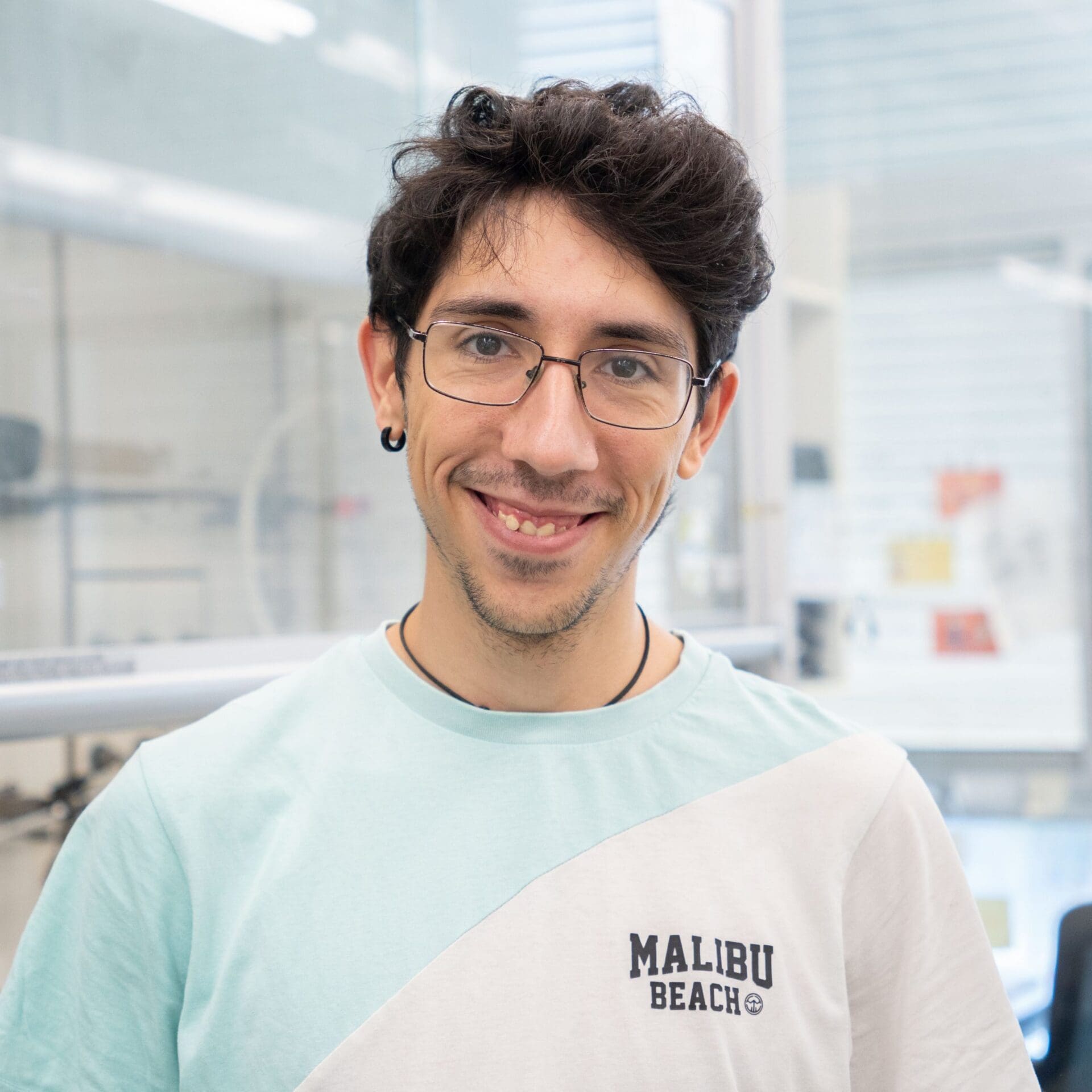Joan Oró (FI) Grant | Luis Merchante Gallego
Molecule-based chemistry for the development of smart multifunctional materials for Energy applications

Grant description
Electrochemistry is emerging as one of the most promising tools for achieving the decarbonization of the energy market. However, achieving selectivity while preventing further oxidation is a big deal. To address this challenge, we propose investigating the partial oxidation of methane to methanol. Certain semiconductors such as TiO₂, BiVO₄, and WO₃ have shown promise in methane oxidation under electrocatalytic conditions, although their selectivity remains limited. However, this limitation may be improved through careful control of the operating conditions. Through this research project, Galan Mascaros' group aima to advance the field of electrocatalysis and contribute to the development of sustainable energy solutions.
The main objectives of this research are the design and construction of gas-solid electrolysis cells to evaluate catalyst performance in selective methane oxidation, the optimization of methane partial oxidation to methanol using water vapor as a source of protons and oxygen, and the development of efficient catalysts and the identification of optimal operating conditions to maximize process selectivity.
The Joan Oró (FI) Predoctoral Fellowships aim to fund the recruitment of predoctoral researchers in training. Moreover, the Joan Oró Programme promotes international mobility and additional training for predoctoral researchers in scientific and transversal skills.
Managed by AGAUR, the grants are part of the Strategic Plan of the Department of Research and Universities of the Government of Catalonia. They are co-funded by the European Social Fund Plus (ESF+), and their goal is to promote research, innovation, and knowledge transfer.
The main purpose of the Joan Oró Programme is to support doctoral studies within the Catalan research system, enabling the completion of high-quality PhD theses that contribute to researchers’ training and professional development.



Amb el suport del programa d’ajuts predoctorals Joan Oró del Departament de Recerca i Universitats de la Generalitat de Catalunya i Fons Social Europeu Plus.
Funded by the Joan Oró Predoctoral Fellowship Programme of the Department of Research and Universities of the Government of Catalonia and the European Social Fund Plus (ESF+).
Fellow
-
Reference: 2024 FI-1 01030
-
Call identifier: Joan Oró (FI) Grant
-
Timeline
01/06/2024 - 31/05/2027
-
ICIQ Funding
72,552.41 € -
Senior Researcher
Prof. José Ramón Galán
-
Financing Agent / Programme
AGAUR

Let's create a brighter future
Join our team to work with renowned researchers, tackle groundbreaking
projects and contribute to meaningful scientific advancements














